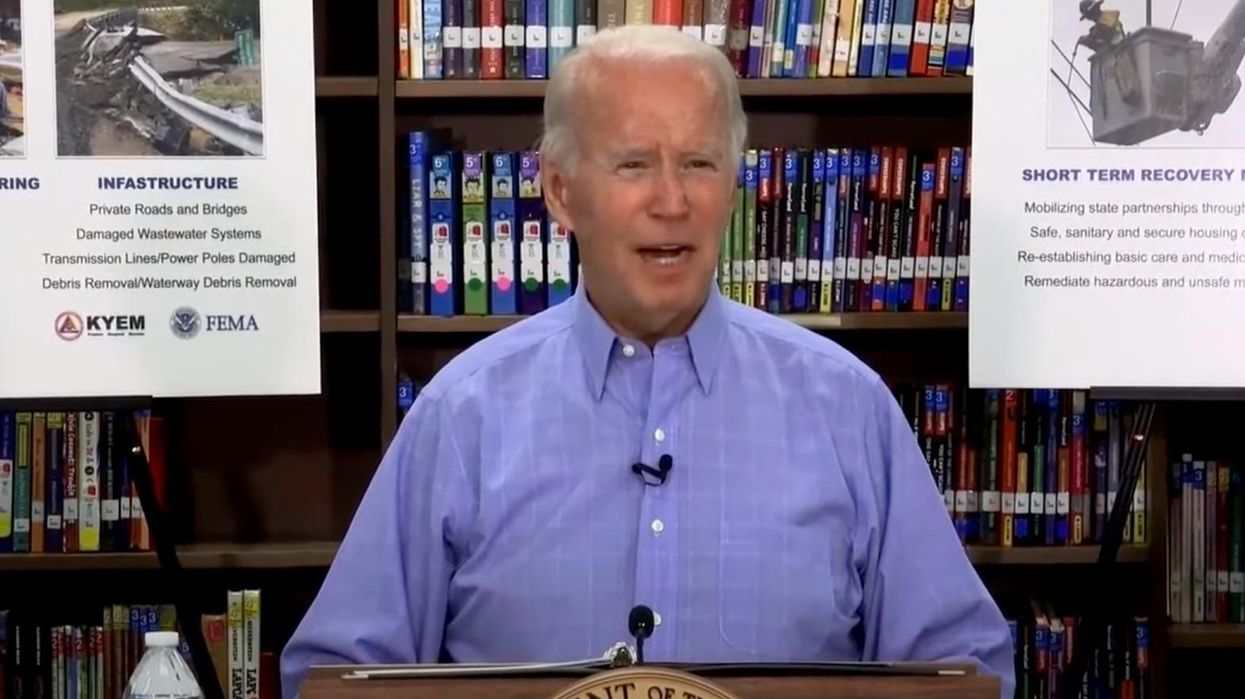Consumer Outlook Improves Sharply As Gas Prices Fall And Job Numbers Rise

Joe Biden
A survey of consumers released on Monday by the Federal Reserve Bank of New York found that expectations of inflation in the next few years has declined for the second month in a row.
The Survey of Consumer Expectations is conducted with a panel of 1,300 household heads every month to gauge how families expect inflation and prices for goods like housing, education, food, and gas to change.
The July 2022 survey found that consumers expect inflation of 6.2 percent over the next year, down from 6.8 percent in the June survey. The results also show that expectations for what it terms "three-year-ahead inflation" have also fallen, from 3.6 percent to 3.2 percent between June and July. The survey found that consumer expectations of price increases for gas and food had fallen "sharply."
In a statement issued with the results, the Federal Reserve Bank of New York said the estimate of inflation increases had declined across income groups but were "largest among respondents with annual household incomes under $50k and respondents with no more than a high school education."
The improvements in consumer outlook come along with other positive indicators about the overall health of the U.S. economy.
On August 5, the Bureau of Labor Statistics reported that hiring in July was far better than expected. The economy added 528,000 jobs, more than doubling the Dow Jones estimate of 258,000 jobs. The unemployment rate fell to 3.6 percent in a return to pre-COVID-19 pandemic levels.
Unemployment hit a high of 14.7 percent in May 2020 under former President Donald Trump, and when Joe Biden took office in January 2021 the rate was at 6.4 percent.
Gas prices have declined every day for at least 50 consecutive days from the record nationwide average high of $5.02 per gallon in June. As of Monday, according to AAA, the national average was $4.05 per gallon. In many states in the South, prices had fallen below $4.00; in Texas, for example, the average is $3.55 per gallon.
In an interview with CNN, Tom Kloza, an analyst with the Oil Price Information Service, attributed the price drop both to drivers' failure to buy gas at higher prices and to President Biden's decision to release a million barrels of emergency oil from the Strategic Petroleum Reserve.
In his March 31 speech announcing administration measures to counter high gas prices, Biden noted, "This is a wartime bridge to increase oil supply until production ramps up later this year. And it is by far the largest release from our national reserve in our history."
Concerns about inflation have contributed to lower approval ratings for Biden, and voters have frequently cited concerns about the economy as their top issue.
Biden has repeatedly described fighting inflation as his "top domestic priority" and has criticized Republican proposals that would raise taxes on the middle class while starving programs like Social Security and Medicare of funds.
The Inflation Reduction Act, a bill that would raise tax rates for large corporations and enhance the IRS' ability to pursue wealthy individuals for tax evasion, passed the Senate on August 7. According to an analysis by the Center on Budget and Policy Priorities, if it is enacted, the legislation will help to reduce the deficit and support "the Federal Reserve's efforts to bring down inflation."
Biden has said he will sign the legislation after its expected passage on August 12 in the House of Representatives.
Reprinted with permission from American Independent.
- Schwab Market Perspective: Crossroads | Charles Schwab ›
- What is behind soaring energy prices and what happens next ... ›
- Inflation: Prices on the Rise - Back to Basics: Finance & Development ›
- Oil prices fall sharply as recession worries grow - The Washington ... ›
- From the barrel to the pump: the impact of the COVID-19 pandemic ... ›








